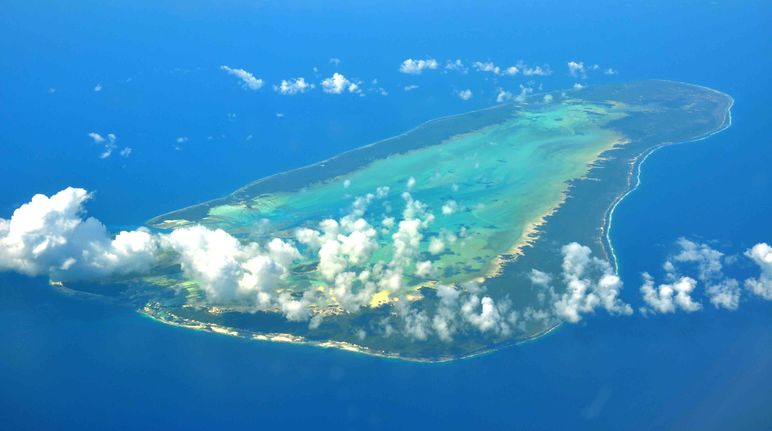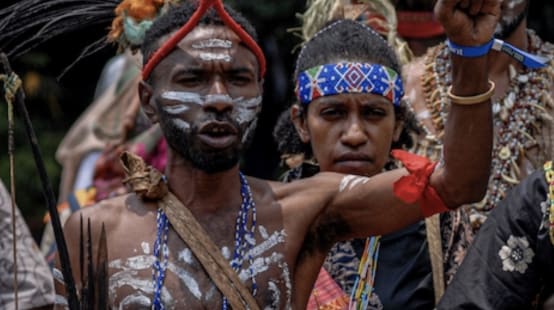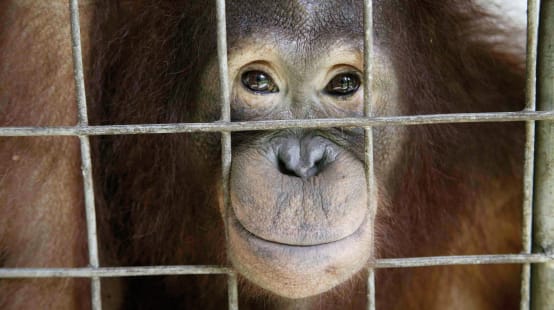Tortoises, not troops – keep the military out of the Seychelles!
 Aldabra Atoll (© Simisa - CC BY-SA 3.0)
Aldabra Atoll (© Simisa - CC BY-SA 3.0)
Aldabra Atoll in the Seychelles is a jewel of the Indian Ocean and home to thousands of giant tortoises. The diversity of fish and coral is astounding – yet the Indian military wants to build a base on a neighboring island, putting the UNESCO World Heritage site in danger. Please support our petition to protect the island.
Call to actionTo: Seychelles President Danny Faure and UNESCO World Heritage Center Director Mechtild Rössler
“India wants to build a military base near Aldabra Atoll in the Seychelles. The UNESCO World Heritage site is in danger – please protect the atoll.”
Aldabra Atoll is a rare and beautiful tropical paradise. Seen from above, the coral islands form a nearly closed ring that is home to a riot of marine biodiversity. The undisputed rulers of the islands are the thousands of giant tortoises. Biologists have documented 400 endemic species and subspecies, including birds such as the Aldabra drongo.
The island of Assumption lies about 37 kilometers to the southwest. With its landing strip and a handful of buildings, it is home to the scientists that are the only continuous human presence in the area. Their isolation could soon be a thing of the past, however.
India wants to build a military base on Assumption, and the Seychelles government is planning to cede control of the island to India for 20 years. For India, Assumption is not an isolated speck of land, but a potentially vital strategic outpost in its rivalry with China.
Environmentalists are alarmed at the prospect: The atoll has remained pristine because of its remote location and the limited number of people allowed to visit. That would change dramatically – and in the worst case, the island could become a battlefield.
Construction workers and military personnel could introduce invasive animal and plant species to the islands with unpredictable consequences for the ecosystem. Soldiers would litter the island with plastic and other waste. Ships and aircraft would cause noise and pollute the air. Leaking fuel and oil could contaminate the soil and water – not to mention the possibility of major oil spills.
These pristine islands must not be sacrificed to military and geopolitical interests. Please sign our petition to the government of the Seychelles and UNESCO to protect Aldabra Atoll.
BackgroundAldabra Atoll is located 1,140 km from Mahé, the main island of the Seychelles. Visitors need three and a half days for the journey by chartered boat. The islands are one of the most isolated ecosystems on the planet and its remoteness has largely spared it human interference. Apart from a research station and landing strip on the island of Assumption, the atoll is uninhabited.
Aldabra Atoll is the second-largest of its kind in the world and around 125,000 years old. The four larger islands of Grand Terre, Malabar, Picard and Polymnie form a ring, encircling a shallow lagoon containing further islands, seagrass beds and mangroves. The atoll is surrounded by a highly biodiverse outer coral reef.
97 species of birds have been documented on Aldabra Atoll, among them numerous seabirds and 13 landbird species such as the white-throated rail (Dryolimnas cuvieri aldabranus), the souimanga sunbird (Cinnyris sovimanga), the endemic Aldabra drongo (Dicrurus aldabranus), the Seychelles fody (Foudia sechellarum) and the endemic Aldabra brush warbler (Nesillas aldabranus).
Even without the threat of a military base, the future of Aldabra Atoll is in danger: Rising water temperatures due to climate change are triggering serious coral bleaching that could result in the death of the reef within the next 80 years.
Military threatens the atoll ecosystem
The Seychelles and India have close military ties. India has donated Dornier maritime surveillance aircraft and an interceptor boat to the Seychelles Coast Guard, and the countries engage in joint military exercises.
India’s investment volume in the future base, which will entail the expansion or new construction of an airfield and a harbor, is rumored to be around $500 million.
Proponents of the base claim that it could also serve to fight ivory trafficking: Conservation is thus perversely being used to rationalize the destruction of a unique ecosystem.
CNN: As China concerns grow, India looks to build military presence in Seychelles
To: Seychelles President Danny Faure and UNESCO World Heritage Center Director Mechtild Rössler
Dear Mr. President,
Dear Ms. Rössler,
Aldabra Atoll, part of the Seychelles, has been a UNESCO World Heritage site since 1982 in recognition of its unique ecosystem. The islands are habitat of many endemic species, including thousands of Aldabra giant tortoises (Geochelone gigantea).
This paradise has thrived since time immemorial with virtually no human interference thanks to its remote location.
However, India now intends to set up a military base on Assumption, about 37 kilometers southwest of the atoll. In the worst case, the islands could become a battlefield. In any case, however, the atoll’s ecosystem would suffer from the introduction of invasive species, pollution of the air, soil and water, noise and the danger of oil spills. Military personnel using the pristine beaches for recreation and the disposal of plastic and other waste would be further issues.
Please do your part to protect these unique islands. The treasure that is Aldabra Atoll must not be sacrificed to military and geopolitical interests.
Yours faithfully,













 Recent successes
Recent successes